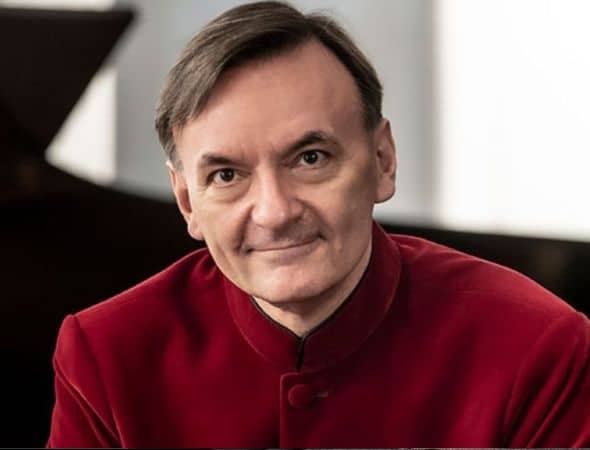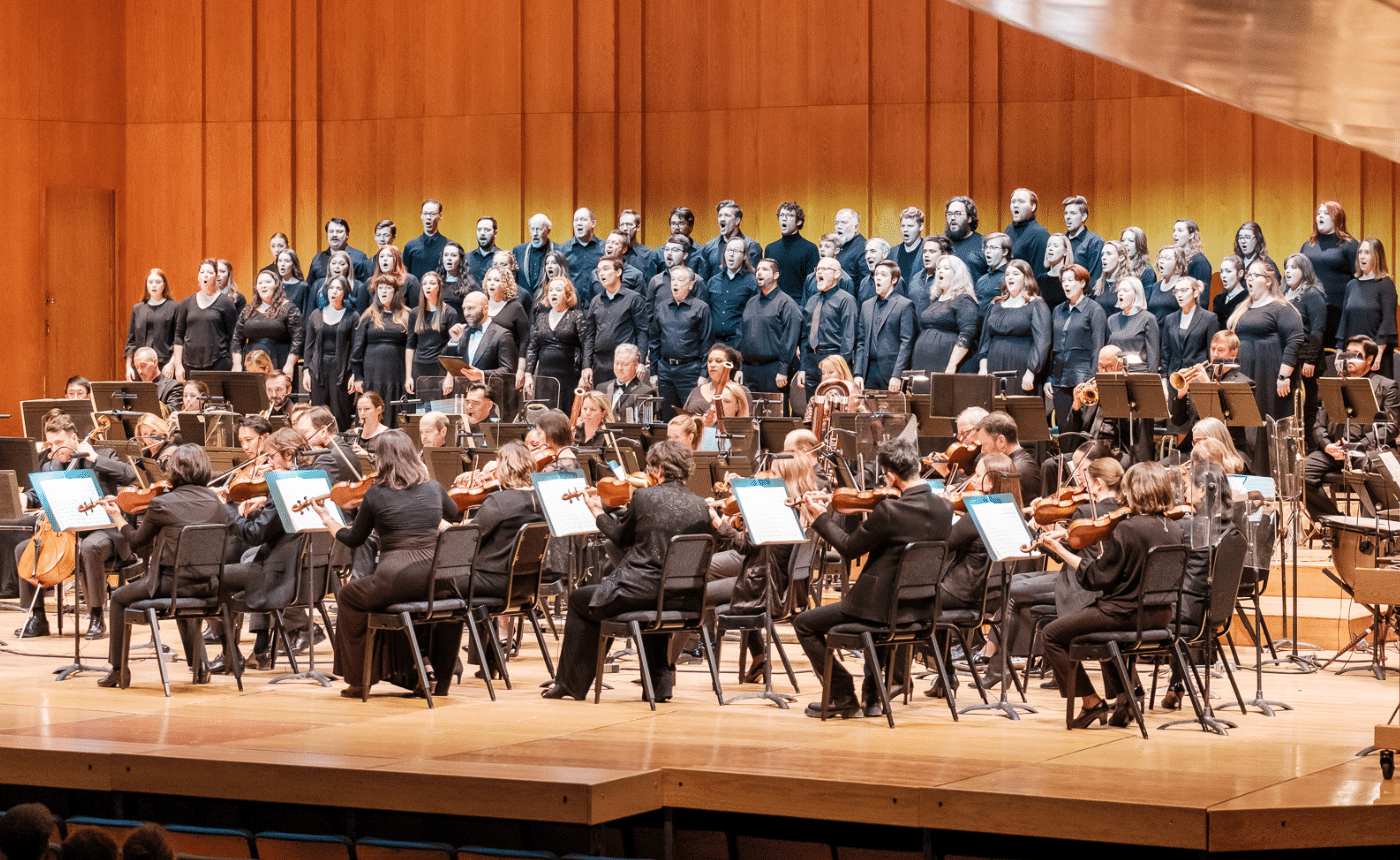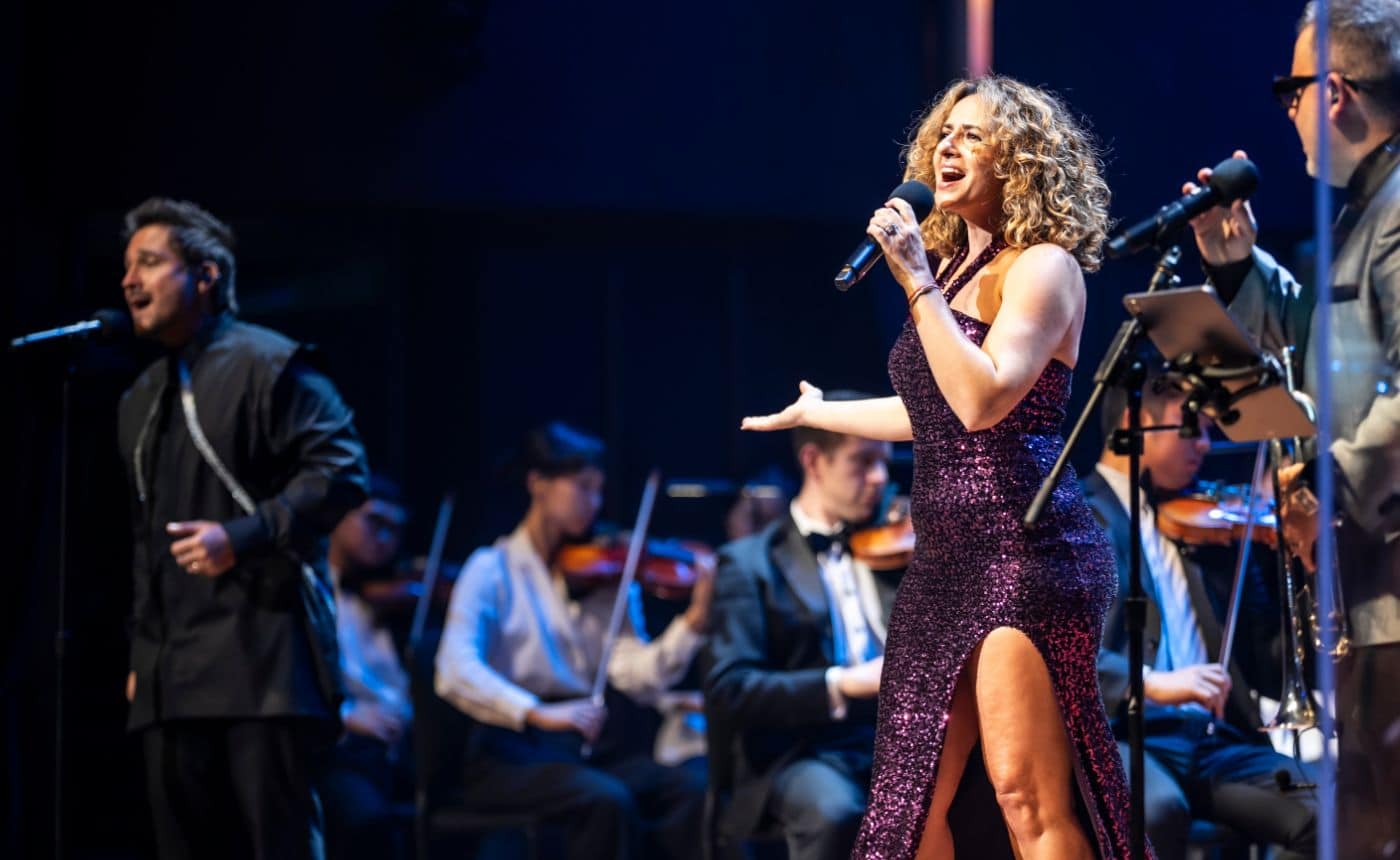STEPHEN HOUGH: Piano Concerto (The World of Yesterday)
by Stephen Hough
This 20-minute piano concerto is based on two motives. The first of these opens the work, heard in its simplest form in violins and flutes, all white-notes, not a cloud in the sky. In bar 3 clarinet and harp answer with a germ of the second motive, a chain of rising triads, also in purest C major, which will later become the Waltz. The Prelude slowly begins to blush with richer harmonies and increasing energy, until the piano enters to play an extended cadenza. After a while the energy of its ragged, splashing virtuosity dissipates and we hear the second motive as a slow, disarmingly sweet-toothed waltz – with a hint of Bill Evans perhaps.
This turns out to be a premonition of the real Waltz section as the strings enter playing the 16-bar theme in its full, decadently seductive form. There follow seven variations on this waltz where the pianist is mainly accompanist, providing a plush carpet of decorative commentary. An eighth variation begins with a cranking up of tempo until, back in C major, we hear both themes waltzing together, glistening with glockenspiel. A further acceleration tumbles us into the Tarantella.

Now the waltz theme is squashed into staccato chords punctuated by xylophone flashes of the first theme. The energy works itself into a frenzy of agitation, propelling the music to a sudden silence, after which we hear the first theme, back in C major but flaring with fanfares and flourishes. The music increases in emotional intensity until the two themes are heard again, now stretched to a new height of sentimental ardour. A lurch of acceleration returns us hastily to the tarantella and from there, inexorably, to the frenetic, blazing conclusion of the piece.
“the world of yesterday” . . . a subtitle with several meanings. It is borrowed from Stefan Zweig’s eponymous memoir with its celebration of Viennese culture before the First World War: the world as it used to be; nostalgia as both literal and legend. But this title became a tag for me, representing the history of the piano concerto form itself: invented to be a touring piece for composers who were also pianists, a visiting card on the road. From Mozart, its most prolific exponent, to Beethoven, Mendelssohn, Chopin, right through to the mid-20th century’s virtuosos, Rachmaninov, Prokofiev and Bartok, to be a pianist was to write a piano concerto. A world of yesterday indeed.











